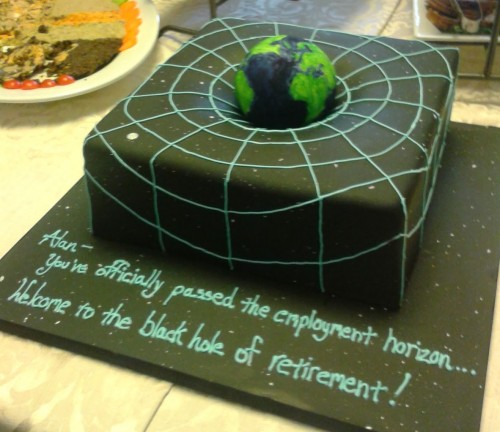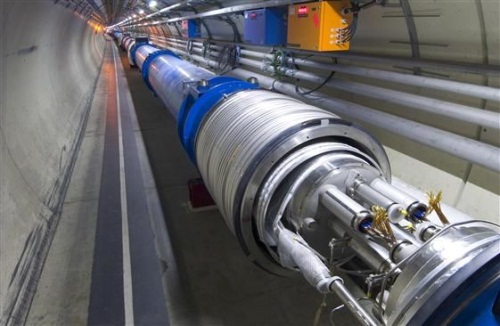Tag archives: low-temperature physics
Watch Deborah Jin’s Newton lecture on ultracold gases
By Hamish Johnston
A few weeks ago Deborah Jin was in London to accept the 2014 Isaac Newton Medal and Prize from the Institute of Physics. As is the custom, Jin also delivered the Institute’s Newton Lecture for 2014, which was called “Ultracold gases”. This is an apt title because Jin is an undisputed master in the control and study of gases that have been cooled to temperatures within a whisker of absolute zero.
Super Bowl, super-chilled leeches, a black hole cake and more

(Courtesy: Quantum/Mathelete/Buzz)
By James Dacey
Fire and ice will mix together in a sporting cauldron this Sunday. The Seattle Seahawks are taking on the Denver Broncos in the Super Bowl at the MetLife Stadium in New Jersey, and all weather forecasters agree that it’s going to be rather chilly. In fact, some have criticized the National Football League (NFL) for electing to play the game in a stadium without a roof, rather than opting to stage the match under cover. Bear in mind, the Super Bowl is the sporting event of the year in the US and people take it very seriously indeed. To address some of the concerns, The Huffington Post published this article to analyse how the mechanics of the game can change under cold conditions. The entertaining article considers everything from the reduced bounciness of the ball, to the increased propensity of helmets to break due to changes in material pliability.
View all posts by this author | View this author's profile
Cryogenics through the ages on BBC radio

The Large Hadron Collider’s superconducting magnets are just one of the many spin-offs from the race to absolute zero. (Courtesy: CERN)
By Hamish Johnston
Physicists have long been interested in how nature behaves under very cold conditions, and about 200 years ago the race began to realize the lowest temperature ever. Along the way, many new and amazing states of matter have been discovered, including superconductors, superfluids and Bose–Einstein condensates. More recently, access to extremely low temperatures has contributed to the current renaissance in the study of fundamental quantum mechanics and the development of quantum computers.
In his latest radio programme, the BBC’s resident polymath Melvyn Bragg looks at this race to the bottom, which really heated up in the late 19th century when physicists and chemists were feverishly liquidizing a wide range of gases include those cryogenic favourites nitrogen – and a little later in 1908 – helium.
View all posts by this author | View this author's profile